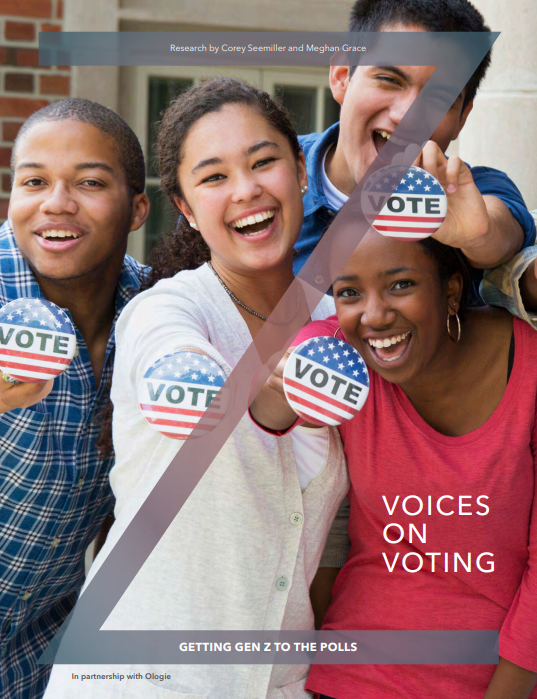2020 is here. And while the new year brings in a new decade, it is also an election year. This year, nearly half of Generation Z is eligible to vote in the Presidential Election. For many, this will be their first time being old enough to head to the Polls.
Prior research indicates Generation Z is very socially informed and concerned about the issues facing their local communities, our country, and the world. Therefore, it is critical that they are voting to ensure their vote is heard and they are represented appropriately in the country.
Knowing that Generation Z is a unique generational cohort, Dr. Corey Seemiller set out to learn more about their perspectives on voting, government, and politics. We launched the Voices on Voting Study in Fall 2019, which engaged hundreds of Generation Z young people across the country in a quantitative and qualitative study conducted through an online survey form.
Our new report, designed in partnership with Ologie, provides initial insights on Generation Z’s views on voting and outlook on politics.Here are 10 takeaways from the report:
The vast majority of Gen Zers have clear and strong political ideologies even when fewer than 30% strongly identify with a political party.
Far more Gen Zers are left-leaning (and even far left-leaning) than right-leaning.
There are two types of Gen Z Independents, Fluid and Blended, and their anticipated voting behavior is vastly different.
Gen Zers’ political ideologies are shaped by their personal values, with human rights/social justice/equality being the most prevalent.
Most Gen Zers believe candidates should be talking about issues around the environment, finances, and healthcare.
Social media is the first stop for many Gen Zers to get political news…but the apps they use for entertainment like SnapChat and TikTok are not their primary places they go to get this news. Instead, they use Twitter and YouTube.
Gen Zers also get political news and information from friends, online news sites, and parents.
Many Gen Zers are more motivated to vote if they believe candidates are good, ethical, caring, realistic, inspiring, and diverse as well as share their views on issues.
Gen Zers would be more motivated to vote if they believed their vote counted, voting was incentivized, there was more unbiased political information available, if voting was easy and accessible, if laws and policies were different, and if they were supported by their friends and family.
There is a lot that can be done to support Gen Zers in voting.
You can download the new report here: Voices on Voting: Getting Gen Z to the Polls.

